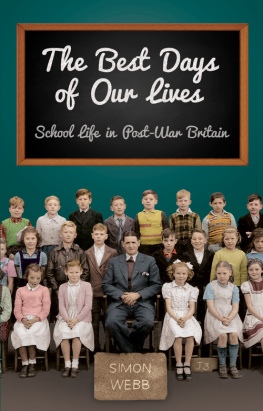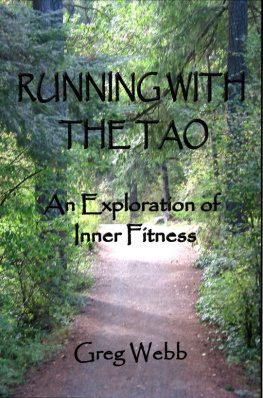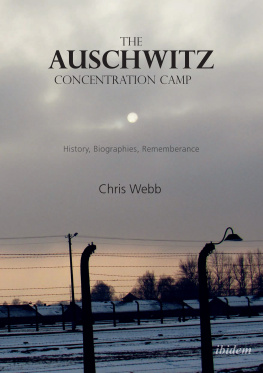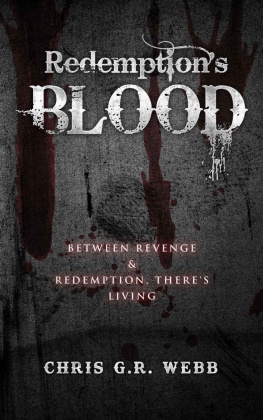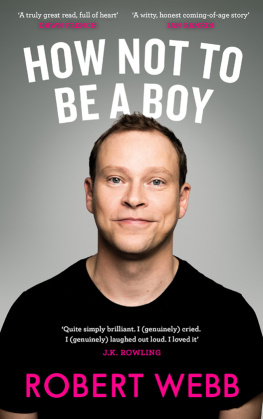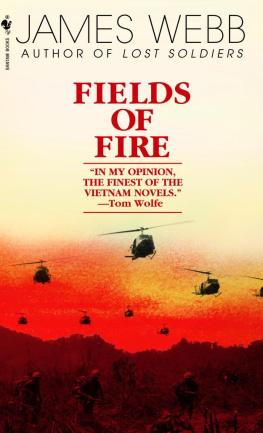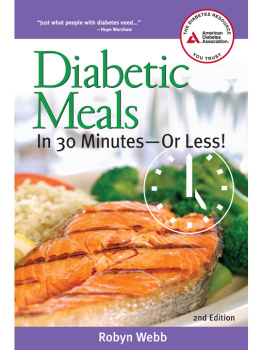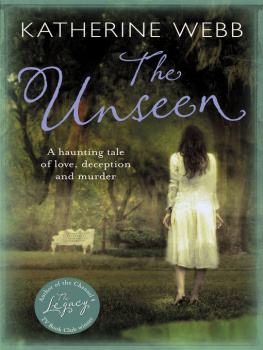

T HIS BOOK IS FOR MY PARENTS, GENE AND SUZANNE LEAR, AND FOR MY WIFE, SHAWN, WITH DEEPEST LOVE AND GRATITUDE.
CONTENTS
FOREWORD
A s I consider the years gone by, I see Gods hand at work in my life. I am not a believer in fate or chance; I believe that each of us is created by God for a specific purpose. Those like Alan Webb, Nate Brannen, Kevin Sullivan, Paul McMullen, Tim Broe, and even myself were purposefully wired with that special blend of strength and speed that the mile requires. We were born to run.
I am fairly confident that no one, not even myself, ever thought that I would amount to much in the world of athletics. In my preteen years, I was even cut from the church baseball team. But running brought something new to the tablea sense of belonging and eventually the taste of success that left me wanting more.
My running career began ingloriously; I dropped out of my first cross country workout. But 2 years lateryears of sweat, tears, frustration, hard work, and incredible successI emerged as Jim Ryun, the runner. At 17, I made my first Olympic team at 1500 meters, and my picture appeared on the cover of Sports Illustrated.
In 1965, at age 18, I found myself at a starting line on a June night just after my high school graduation. In the year since the Olympics, I had become even stronger and more confident.
To my left on that warm San Diego night was Jim Grelle, the American record holder in the mile. To his left was Peter Snell, the double gold medalist from the Olympics the year before. My race plan was simple: stay near the front, then make a move with 300 meters to go and hold off Snell and Grelle.
As the race progressed, I made my move as planned. I held off Grelle and, miraculously, Snell. I hit the tape first in 3:55.3, a new American record. All I could do for the next 30 minutes was sit on a bench with a towel clenched between my teeth. I had never hurt so much in all my life. I didnt know it then, but my 3:55.3 would become a high school record that would stand for 36 years.
When Tim Danielson and Marty Liquori broke 4 minutes in consecutive years after me, it seemed only a matter of time before my record fell. But with each passing year, it became more than a mark. For American high school runners, the 4-minute mile suddenly became a barrier. For most of them, my record seemed beyond even their wildest dreams.
Then, in June 1999, something happened: My sophomore mile record fell to a young man named Alan Webb. The next year, he scared 4 minutes with his 4:03, and then came his 3:59 on January 20, 2001. One barrier down, one to go.
In May 2001, I was in Kansas at a Wichita East High School track reunion when I received the call about Webbs record run. I must confess, I felt a twinge at seeing my record go. But more than that, I felt great joy for Webb; he had faced the barrier and broken through it. And at the end of those brief 3 minutes and 53 seconds, he moved from stellar high school athlete to Americas future hope for the mile. It is a heavy mantle to wear. It is something that must be embraced, for it has its own unique pressures. The failures seem that much greater, the successes that much sweeter.
Webbs first year out of high school somewhat echoed my 1972 season. It is not a year I would ever wish to relive. The highs were extremely high, the lows extremely low. From one week to the next, I could run a 3:55 mile or a 4:07. Without a doubt, the lowest point was the 4:19 I ran during a race televised to a national audience. I still vividly remember walking from the track, waving off the press, and finding a tree to beat on with my spikes.
However, it was out of this crucible of events that I became the man I am today. It is through the struggle that often we find the reward. I have no doubt the same will be true for Alan Webb. Im not saying that he will never again have a year like he had in 2002. Competitive running is filled with too many variables to make such a statement. Webb tasted necessary failure that year, as we all do. Life is not a constant state of living on the mountaintops.
That fact, for me, is the beauty of Chris Lears Sub 4:00. He takes us inside the tumultuous world of competitive running. It is never just about the races; I always felt the races themselves comprised about 10 percent of my running career. It is about the preparation, the outside pressures, the mental game, and, most important, those few fleeting moments when we are in the running zone and everything is effortless. This reality was clear in Lears first book, Running with the Buffaloes, and it shines through again in Sub 4:00.
Congressman Jim Ryun
Lawrence, Kansas
March 2003
ACKNOWLEDGMENTS
O n a brisk, drizzly evening in late spring, I was riding shotgun with Michigan freshman Sean Moore when conversation turned to running for Michigan. Moore said, You know, most of us had choices; we could have gone to schools with nicer weather, equal academic reputations. When it comes down to it, were at Michigan for one reason: were here because of Ronnie.
Count me in, too. From this books inception, in the fall of 2001, to the end of my stay in Ann Arbor, in June 2002, Ron Warhurst was unflinchingly honest and cooperative. The season played out differently than anyone could have imagined, and Im sure there were instances when he wished I would eat that damned tape recorder or when he wanted to be rid of my presence. To his credit, with nothing to gain, he never made me feel unwelcome. On the contrary, he made me feel at home, and for the vast majority of my stay in Ann Arbor, kept me laughing. I am truly indebted to him.
I am also grateful to the core group of milers who welcomed me into their lives and are at the heart of this book. Kevin Sullivan, Tim Broe, Paul McMullen, Nate Brannen, and Alan Webb could not have been more gracious or more cooperative. Not only are they spectacular athletes, theyre also stand-up guys. Ill cherish my memories of the time I spent with them and look forward to crossing paths with all of them in the future. Special thanks to Tim Broe and Vanessa Bell for their friendship and for miraculously coming up with extra chicken or a plate of pasta, time and again.
The rest of the Michigan track family was just as kind to me in my months in Ann Arbor. Trainer Will Turner and ace physiotherapist Pete Kitto helped mend me when I broke down. The Michigan track staffFred LaPlante, Ricky Deligny, James Henry, Anne Takacs-Grieb, Karen Harvey, and Mike McGuirewere a joy to be around. The same can be said for the Michigan team. I first met Michigan runners Nick Stanko and Drennan Wesley when they ventured to Boulder, Colorado, for a summer of run and fun in 2001, and we quickly forged a friendship. Their friendship and insight into the tides of Ann Arbor and their assistance during my stay were incalculably helpful. Thanks too to the entire Michigan track team, particularly the middle-distance and distance runners with whom I spent so much time. Id be remiss if I didnt list those I havent already mentioned by name: Brian Berryhill, David Cook, Dan Cooke, Tom Greenless, Ryan Hesselink, Kevin Lamb, Tarn Leach, Mark Pilja, Terrence Rindler, Kevin Rogan, Rondell Ruff, Dave Sage, Jeremy Schneider, Phil Stead, Brian Turner, and Mike Wisniewski.
Along the way, many people graciously shared their time, insight, and hospitality. Some received scant mention in the final draft, but I valued their time and contributions just the same. Thanks to Kalli Warhurst, Bill Martin, Bruce Madej, David Crabtree, Andrew Ladd, Todd Snyder, Katie Treveloni, Nick Harp, Jill McMullen, John Mortimer, Brian Diemer, Greg Meyer, Dr. Jon Cross, Ian Forsyth, Scott MacDonald, Gerard Donakowski, Andy Downin, Matt Downin, Dave Monti, Josh Rowe, Toni Berryhill, Rick Berryhill, Kathy Berryhill, Adam Goucher, Ryan Bolton, Diane Broe, Jason Broe, Les Gauwitz, Ed McGraw, Matt Holthaus, Chris Graff, Elizabeth Graff, Steve Scott, Bernard Lagat, Hicham El Gerrouj, Abdelkada Kada, Ibrahim Aden, Jason Vigilante, John Cook, Scott Raczko, Jorge Torres, Ed Torres, Steve Slattery, Dathan Ritzenhein, the Webb family, Peter Grinbergs, Abdi Abdirahman, Jason Lunn, Todd Klein, Todd Williams, Anthony Famiglietti, Alison Wade, Marcus OSullivan, Ryan Hayden, Adrian Blincoe, Jason Jabaut, Nic OBrien, Scott Tantino, Jon Fasulo, Tom Parlapiano, Del Hessel, Steve Holman, Seneca Lassiter, Marty Liquori, Don Kopriva, Dan Wilson, Scott Davis, and Josh Spiker. And to anyone I may have accidentally missed, thank you!
Next page

